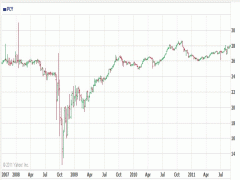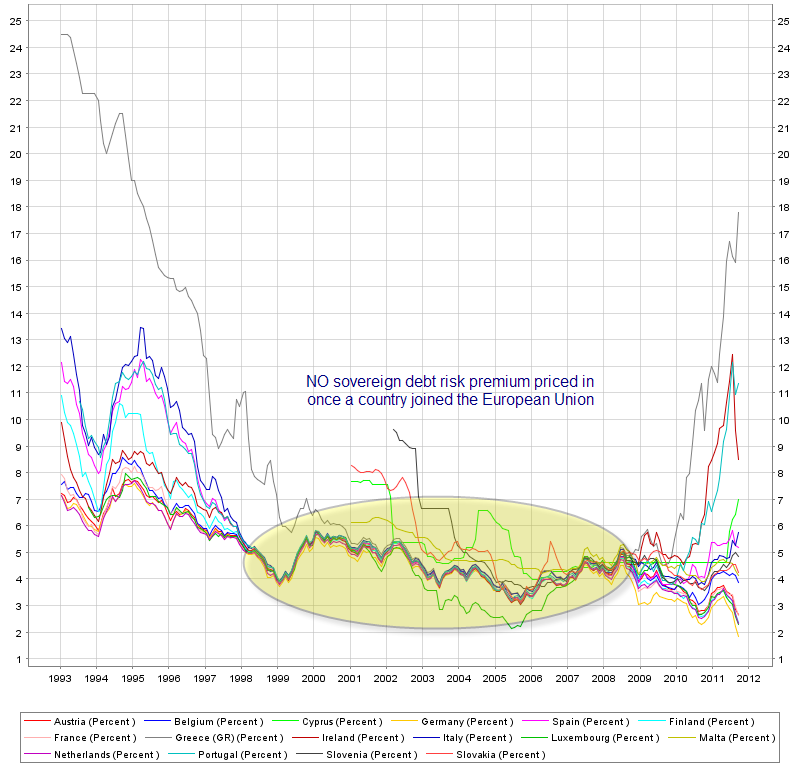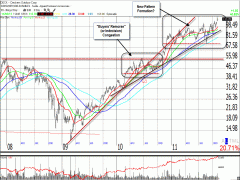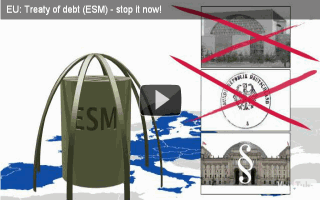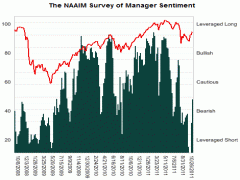(SeekingAlpha-MHFT) “Textile workers earn $2.99 an hour in India ($PIN), $1.84 in China ($FXI), and $0.49 in Vietnam ($VNM).”
“This compares to the $8 an hour our much abused illegals get at sweat shops in Los Angeles, and $10 in some of the nicer places. What’s more, the Indian wage is up 17% in a year, meaning that inflation is casting a lengthening shadow over the sub continent’s economic miracle. A series of strikes and a wave of suicides have brought wage settlements with increases as high as 20% in China.”
“This is how the employment drain in the US is going to end. When foreign labor costs reach half of those at home, manufacturers quit exporting jobs because the cost advantages gained are not worth the headaches and risk involved in managing a foreign language work force, the shipping expense, political risk, import duties, and supply disruptions, just to get lower quality goods. Chinese wage growth at this rate takes them up to half our minimum wage in only five years.”
“This has already happened in South Korea ($EWY), where wage costs are 60% of American ones. As a result, Korea’s GDP growth is half that seen in China. These numbers are also a powerful argument for investing in Vietnam, where wages are only 27% of those found in the Middle Kingdom, and where Chinese companies are increasingly doing their own offshoring.”
Full Story: How US Job Losses Will End (SeekingAlpha-MHFT)
Reducing overwhelming regulatory burdens and requirements would also go a long way to help reduce unemployment as well:
(PeterSchiff) “In my own business, securities regulations have prohibited me from hiring brokers for more than three years. I was even fined fifteen thousand dollar expressly for hiring too many brokers in 2008. In the process I incurred more than $500,000 in legal bills to mitigate a more severe regulatory outcome as a result of hiring too many workers. I have also been prohibited from opening up additional offices. I had a major expansion plan that would have resulted in my creating hundreds of additional jobs. Regulations have forced me to put those jobs on hold.”
Full Story: Peter Schiff: Before the Congressional Committee of Oversight & Reform (YouTube)
Transcript for Peter Schiff September 13, 2011 Congressional Testimony on Job Creation
Mr. Chairman, Mr. Ranking member, and all distinguished members of this panel. Thank you for inviting me here today to offer my opinions as to how the government can help the American economy recover from the worst crisis in living memory.
Despite the understandable human tendency to help others, government spending cannot be a net creator of jobs. Indeed many efforts currently under consideration by the Administration and Congress will actively destroy jobs. These initiatives must stop. While it is easy to see how a deficit-financed government program can lead to the creation of a specific job, it is much harder to see how other jobs are destroyed by the diversion of capital and resources. It is also difficult to see how the bigger budget deficits sap the economy of vitality, destroying jobs in the process.
In a free market jobs are created by profit seeking businesses with access to capital. Unfortunately Government taxes and regulation diminish profits, and deficit spending and artificially low interest rates inhibit capital formation. As a result unemployment remains high, and will likely continue to rise until policies are reversed.
It is my belief that a dollar of deficit spending does more damage to job creation than a dollar of taxes. That is because taxes (particularly those targeting the middle or lower income groups) have their greatest impact on spending, while deficits more directly impact savings and investment. Contrary to the beliefs held by many professional economists spending does not make an economy grow. Savings and investment are far more determinative. Any program that diverts capital into consumption and away from savings and investment will diminish future economic growth and job creation.
Creating jobs is easy for government, but all jobs are not equal. Paying people to dig ditches and fill them up does society no good. On balance these “jobs” diminish the economy by wasting scarce land, labor and capital. We do not want jobs for the sake of work, but for the goods and services they produce. As it has a printing press, the government could mandate employment for all, as did the Soviet Union. But if these jobs are not productive, and government jobs rarely are, society is no better for it.
This is also true of the much vaunted “infrastructure spending.” Any funds directed toward infrastructure deprive the economy of resources that might otherwise have funded projects that the market determines have greater economic value. Infrastructure can improve an economy in the log-run, but only if the investments succeeds in raising productivity more than the cost of the project itself. In the interim, infrastructure costs are burdens that an economy must bear, not a means in themselves.
Unfortunately our economy is so weak and indebted that we simply cannot currently afford many of these projects. The labor and other resources that would be diverted to finance them are badly needed elsewhere.
Although it was labeled and hyped as a “jobs plan,” the new $447 billion initiative announced last night by President Obama is merely another government stimulus program in disguise. Like all previous stimuli that have been injected into the economy over the past three years, this round of borrowing and spending will act as an economic sedative rather than a stimulant. I am convinced that a year from now there will be even more unemployed Americans than there are today, likely resulting in additional deficit financed stimulus that will again make the situation worse.
The president asserted that the spending in the plan will be “paid for” and will not add to the deficit. Conveniently, he offered no details about how this will be achieved. Most likely he will make non-binding suggestions that future congresses “pay” for this spending by cutting budgets five to ten years in the future. In the meantime money to fund the stimulus has to come from someplace. Either the government will borrow it legitimately from private sources, or the Federal Reserve will print. Either way, the adverse consequences will damage economic growth and job creation, and lower the living standards of Americans.
There can be no doubt that some jobs will in fact be created by this plan. However, it is much more difficult to identify the jobs that it destroys or prevents from coming into existence. Here’s a case in point: the $4,000 tax credit for hiring new workers who have been unemployed for six months or more. The subsidy may make little difference in effecting the high end of the job market, but it really could make an impact on minimum wage jobs where rather than expanding employment it will merely increase turnover.
Since an employer need only hire a worker for 6 months to get the credit, for a full time employee, the credit effectively reduces the $7.25 minimum wage (from the employer’s perspective) to only $3.40 per hour for a six-month hire. While minimum wage jobs would certainly offer no enticement to those collecting unemployment benefits, the lower effective rate may create some opportunities for teenagers and some low skilled individuals whose unemployment benefits have expired. However, most of these jobs will end after six months so employers can replace those workers with others to get an additional tax credit.
Of course the numbers get even more compelling for employers to provide returning veterans with temporary minimum wage jobs, as the higher $5,600 tax credit effectively reduces the minimum wage to only $1.87 per hour. If an employer hires a “wounded warrior”, the tax credit is $9,600 which effectively reduces the six-month minimum wage by $9.23 to negative $1.98 per hour. This will encourage employers to hire a “wounded warrior” even if there is nothing for the employee to do. Such an incentive may encourage such individuals to acquire multiple no-show jobs form numerous employers. As absurd as this sounds, history has shown that when government created incentives, the public will twist themselves into pretzels to qualify for the benefit.
The plan creates incentives for employers to replace current minimum wage workers with new workers just to get the tax credit. Low skill workers are the easiest to replace as training costs are minimal. The laid off workers can collect unemployment for six months and then be hired back in a manner that allows the employer to claim the credit. The only problem is that the former worker may prefer collecting extended unemployment benefits to working for the minimum wage!
The $4,000 credit for hiring the unemployed as well as the explicit penalties for discriminating against the long-term unemployed will result in a situation where employers will be far more likely to interview and hire applicants who have been unemployed for just under six months. Under the law, employers would be wise to refuse to interview anyone who has been unemployed for more than six months, as any subsequent decision not to hire could be met with a lawsuit. However, to get the tax credit they would be incentivized to interview applicants who have been unemployed for just under six months. If they are never hired there can be no risk of a lawsuit, but if they are hired, the start date can be planned to qualify for the credit.
The result will simply create classes of winners (those unemployed for four or five months) and losers (the newly unemployed and the long term unemployed). Ironically, the law banning discrimination against long-term unemployed will make it much harder for such individuals to find jobs.
At present, I am beginning to feel that over regulation of business and employment, and an overly complex and punitive tax code is currently a bigger impediment to job growth than is our horrific fiscal and monetary policies. As a business owner I know that reckless government policy can cause no end of unintended consequences.
As I see it, here are the biggest obstacles preventing job growth:
1. Monetary policy
Interest rates are much too low. Cheap money produced both the stock market and real estate bubbles, and is currently facilitating a bubble in government debt. When this bubble bursts the repercussions will dwarf the shock produced by the financial crisis of 2008. Interest rates must be raised to bring on a badly needed restructuring of our economy. No doubt an environment of higher rates will cause short-term pain. But we need to move from a “borrow and spend” economy to a “save and produce” economy. This cannot be done with ultra-low interest rates. In the short-term GNP will need to contract. There will be a pickup in transitory unemployment. Real estate and stock prices will fall. Many banks will fail. There will be more foreclosures. Government spending will have to be slashed. Entitlements will have to be cut. Many voters will be angry. But such an environment will lay the foundation upon which a real recovery can be built.
The government must allow our bubble economy to fully deflate. Asset prices, wages, and spending must fall, interest rates, production, and savings must rise. Resources, including labor, must be reallocated away from certain sectors, such as government, services, finance, health care, and educations, and be allowed to into manufacturing, mining, oil and gas, agriculture, and other goods producing fields. We will never borrow and spend our way out of a crisis caused by too much borrowing and spending. The only way out is to reverse course.
2. Fiscal policy
To create conditions that foster growth, the government should balance the budget with major cuts in government spending, severely reform and simplify the tax code. It would be preferable if all corporate and personal taxes could be replaces by a national sales tax. Our current tax system discourages the activities that we need most: hard work, production, savings, investment, and risk taking. Instead it incentivizes consumption and debt. We should tax people when they spend their wealth, not when they create it. High marginal income tax rates inflict major damage to job creation, as the tax is generally paid out of money that otherwise would have been used to finance capital investment and job creation.
3. Regulation
Regulations have substantially increased the costs and risks associated with job creation. Employers are subjected to all sorts of onerous regulations, taxes, and legal liability. The act of becoming an employer should be made as easy as possible. Instead we have made it more difficult. In fact, among small business owners, limiting the number of employees is generally a goal. This is not a consequence of the market, but of a rational desire on the part of business owners to limit their cost and legal liabilities. They would prefer to hire workers, but these added burdens make it preferable to seek out alternatives.
In my own business, securities regulations have prohibited me from hiring brokers for more than three years. I was even fined fifteen thousand dollar expressly for hiring too many brokers in 2008. In the process I incurred more than $500,000 in legal bills to mitigate a more severe regulatory outcome as a result of hiring too many workers. I have also been prohibited from opening up additional offices. I had a major expansion plan that would have resulted in my creating hundreds of additional jobs. Regulations have forced me to put those jobs on hold.
In addition, the added cost of security regulations have forced me to create an offshore brokerage firm to handle foreign accounts that are now too expensive to handle from the United States. Revenue and jobs that would have been created in the U.S. are now being created abroad instead. In addition, I am moving several asset management jobs from Newport Beach, California to Singapore.
As Congress turns up the heat, more of my capital will continue to be diverted to my foreign companies, creating jobs and tax revenues abroad rather than in the United States.
To encourage real and lasting job growth the best thing the government can do is to make it as easy as possible for business to hire and employ people. This means cutting down on workplace regulations. It also means eliminating the punitive aspects of employment law that cause employers to think twice about hiring. To be blunt, the easier employees are to fire, the higher the likelihood they will be hired. Some steps Congress could take now include:
a. Abolish the Federal Minimum Wage
Minimum wages have never raised the wages of anyone and simply draw an arbitrary line that separates the employable from the unemployable. Just like prices, wages are determined by supply and demand. The demand for workers is a function of how much productivity a worker can produce. Setting the wage at $7.25 simply means that only those workers who can produce goods and services that create more than $7.25 (plus all additional payroll associated costs) per hour are eligible for jobs. Those who can’t, become permanently unemployable. The artificial limits encourage employers to look to minimize hires and to automate wherever possible.
By putting many low skill workers (such as teenagers) below the line, the minimum wage prevents crucial on the job training, which could provide workers with the experience and skills needed to earn higher wages.
b. Repeal all Federal workplace anti-discrimination Laws
One of the reasons unemployment is so high among minorities is that business owners (particularly small business) are wary of legal liability associated with various categories of protected minorities. The fear of litigation, and the costly judgments that can ensue, are real. Given that it is nearly impossible for an employer to control all the aspects of the workplace environment, litigation risk is a tangible consideration. Given all the legal avenues afforded by legislation, minority employees are much more likely to sue employers. To avoid this, some employers simply look to avoid this outcome by sticking with less risky employee categories. It is not racism that causes this discrimination, but a rational desire to mitigate liability. The reality is that a true free market would punish employers that discriminate based on race or other criteria irrelevant to job performance. That is because businesses that hire based strictly on merit would have a competitive advantage. Anti-discrimination laws titled the advantage to those who discriminate.
c. Repeal all laws mandating employment terms such as work place conditions, over-time, benefits, leave, medical benefits, etc.
Employment is a voluntary relationship between two parties. The more room the parties have to negotiate and agree on their own terms, the more likely a job will be created. Rules imposed from the top create inefficiencies that limit employment opportunities. Employee benefits are a cost of employment, and high value employees have all the bargaining power they need to extract benefits from employers. They are free to search for the best benefits they can get just as they search for the best wages.
Companies that do not offer benefits will lose employees to companies that do. Just as employees are free to leave companies at will, so too should employers be free to terminate an employee without fear of costly repercussions. Individuals should not gain rights because they are employees, and individuals should not lose rights because they become employers.
d. Abolish extended unemployment benefits
In addition to being a source of emergency funds, unemployment benefits over time become more of a disincentive to employment than anything else (although the disincentive diminishes with the worker’s skill level — i.e. high wage workers are unlikely to forego a high wage job opportunity to preserve unemployment benefits). For marginally skilled workers unemployment insurance is a major factor in determining if a job should be taken or not.
Even if unemployment pays a significant fraction of the wage a worker would get with a full time job, the money may be enough to convince the worker to stay home. After all, there are costs associated with having a job. Not only does a worker pay payroll and income taxes on any wages he earns, the loss of unemployment benefits itself acts as a tax. Plus workers must pay for such job related expenses as transportation, clothing, restaurant meals, dry cleaning and childcare, and they must forgo other work that they could do in their free time (providing care for loved ones, home improvement, etc.).
Understandably, most people also find leisure time preferable to work. As a result, any job that does not offer a major monetary advantage to unemployment benefits will likely be turned down. This entrenches unemployment insurance recipients into a class of permanently unemployed workers.
It is no accident that employment increases immediately after unemployment insurance expires for many categories of workers. In fact, many individual will seek to max out their benefits, and remain unemployed until those benefits expire. If they work at all, it will be for cash under-the-table, so as not to leave any money on the table.
No Comments »
 RSS feed for comments on this post. TrackBack URL
RSS feed for comments on this post. TrackBack URL






